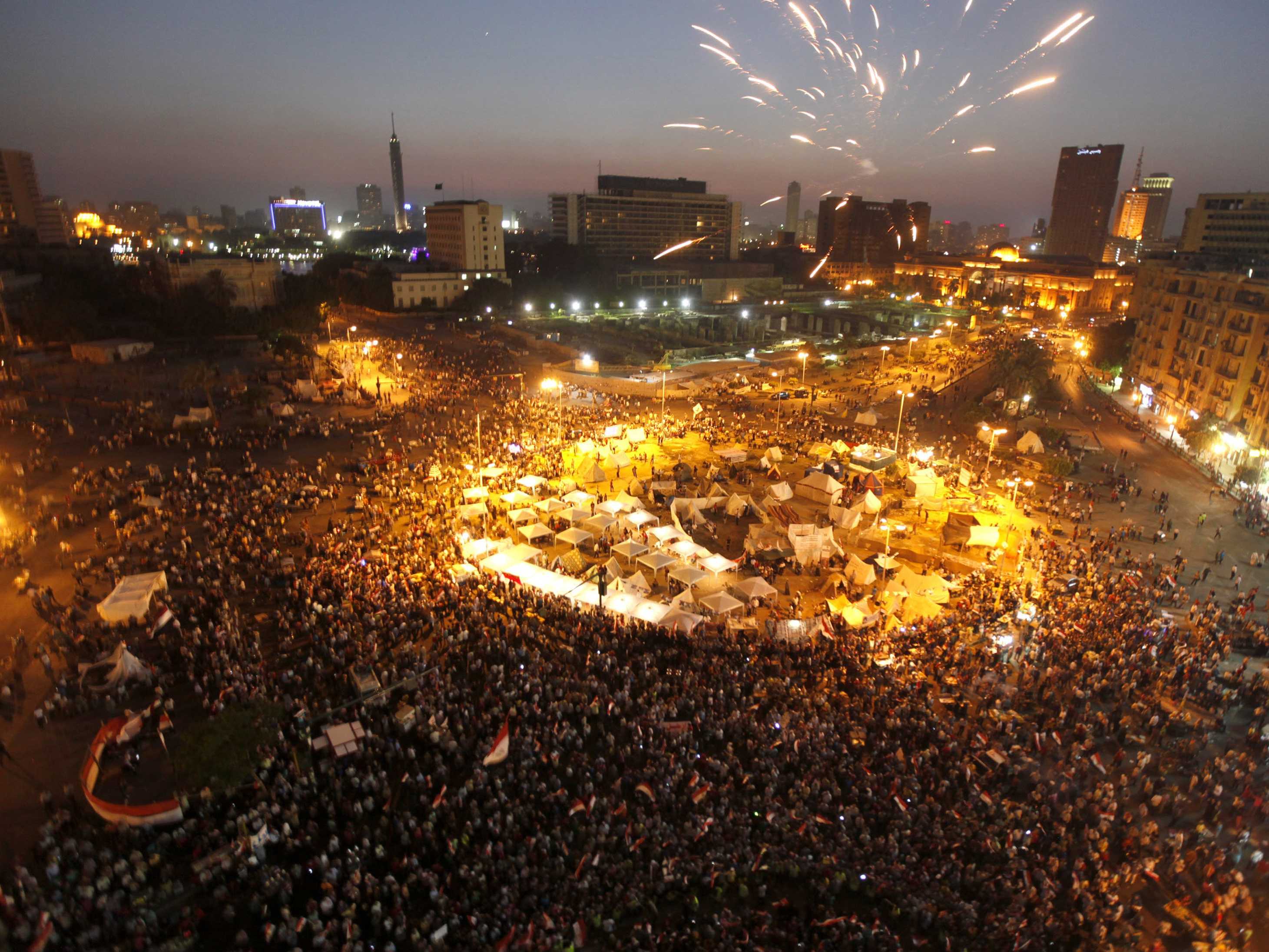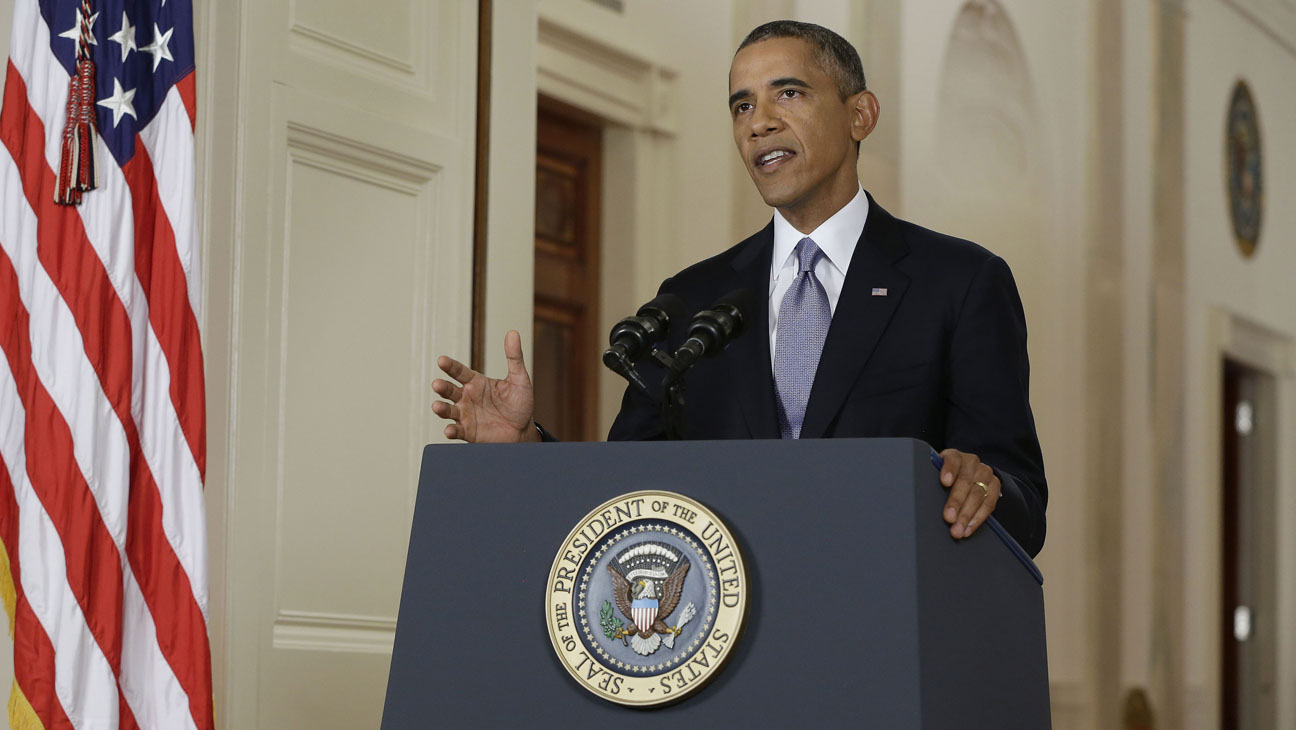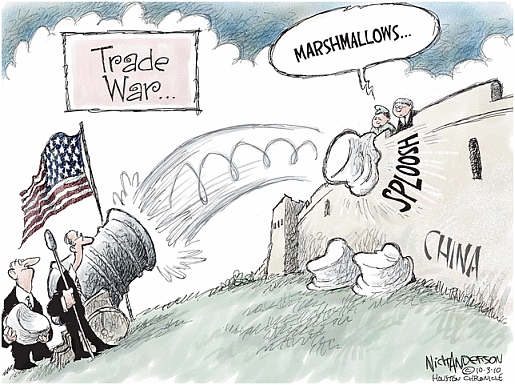[captionpix align=”right” theme=”elegant” width=”300″ imgsrc=”http://natoassociation.ca/wp-content/uploads/2013/09/egypt_protest_101.jpg ” captiontext=”Protests in Cairo”]
It is rumoured that the new constitution being drafted for Egypt by interim President Adly Mansour’s military-backed government will ban religious political parties and declare the Muslim Brotherhood a terrorist organization. The aim is to secularize Egyptian politics, but history is not on their side. The use of state institutions to clamp down on Islam has never worked.
This is not the first attempt to silence Islam as a political force. The political commentator Juan Cole provides a detailed list of prior cases: Sadam Hussein in Iraq, Zine El Abidin Ben Ali in Tunisia, the Baath Party in Syria, Reza Shah and Mohammed Reza Pahlavi in Iran, the USSR in Afghanistan, the Algerian military, and, with persistence, the Egyptian government (the Muslim Brotherhood was first banned in 1948, leading to the assassination of Prime Minister Mahmoud al-Nuqrashi). In all cases, political Islam was momentarily muffled only to regain prominence when state power weakened. Juan Cole found that no attempt at banning political Islam has been successful in the long term, while short-term successes were achieved only by employing ruthless and murderous methods, sometimes at the cost of hundreds of thousands of lives like in the case of the 150 000 murdered by the Algerian military in its suppression of the Islamic Salvation Front in the 1990s.
Egypt is showing all the signs of repeating this bloody and pointless history. The military is killing hundreds of Brotherhood and non-Brotherhood protestors, while working behind the scenes to craft a constitution designed to institutionalize the marginalization of Egyptian Muslims. This will push young Muslims into the arms of the Muslim Brotherhood and the extremist elements within that movement will increasingly resort to violence to overturn their reduced status.
Since last month, approximately 700 Egyptian protesters have been killed, including 50 in Cairo and 20 in Alexandria during a “Day of Rage” called for by the Brotherhood. If the government continues down this path, the end result will be an enduring conflict with the Brotherhood that will stretch far into the future, with the next generation of Egyptian Muslims inheriting a deep-seated hatred for an intolerant and repressive government. However popular this government may be among other Egyptians at present, the Brotherhood’s complaints will bear the hallmarks of legitimacy. It will remind its members that the military overthrew a democratically elected president and ousted the Brotherhood from its legitimate place in the Egyptian parliament. It will remind all Egyptian Muslims that they are second-class citizens under this regime, denied their rightful political rights. Regardless of the actually validity of these claims, Brotherhood members will present a compelling case to their followers and offspring promoting hatred of the army and government for years to come.
[captionpix align=”left” theme=”elegant” width=”300″ imgsrc=”http://natoassociation.ca/wp-content/uploads/2013/09/1219610754.jpg”]
Mansour and the Egyptian generals need to hit the history books: the attempt to suppress political Islam is a very bad idea. Regardless of whether or not the Brotherhood is a force for good in Egypt, the prospect of continuing violence can only be avoided by involving all political parties in the democratic process – especially those parties, like the Brotherhood, with widespread public support. The military needs to learn this lesson quickly and pull back from institutionalizing suppression by constitutional fiat. To do otherwise risks turning the Muslim Brotherhood into Egypt’s equivalent of the Taliban in Afghanistan. The solution is not to ban them, but instead to consolidate the foundations of a new Egypt around inviolable principles like democracy and social and religious liberty, in an effort to make it impossible for future governments to warp the institutions of government to serve their own power or people – a challenging task.




